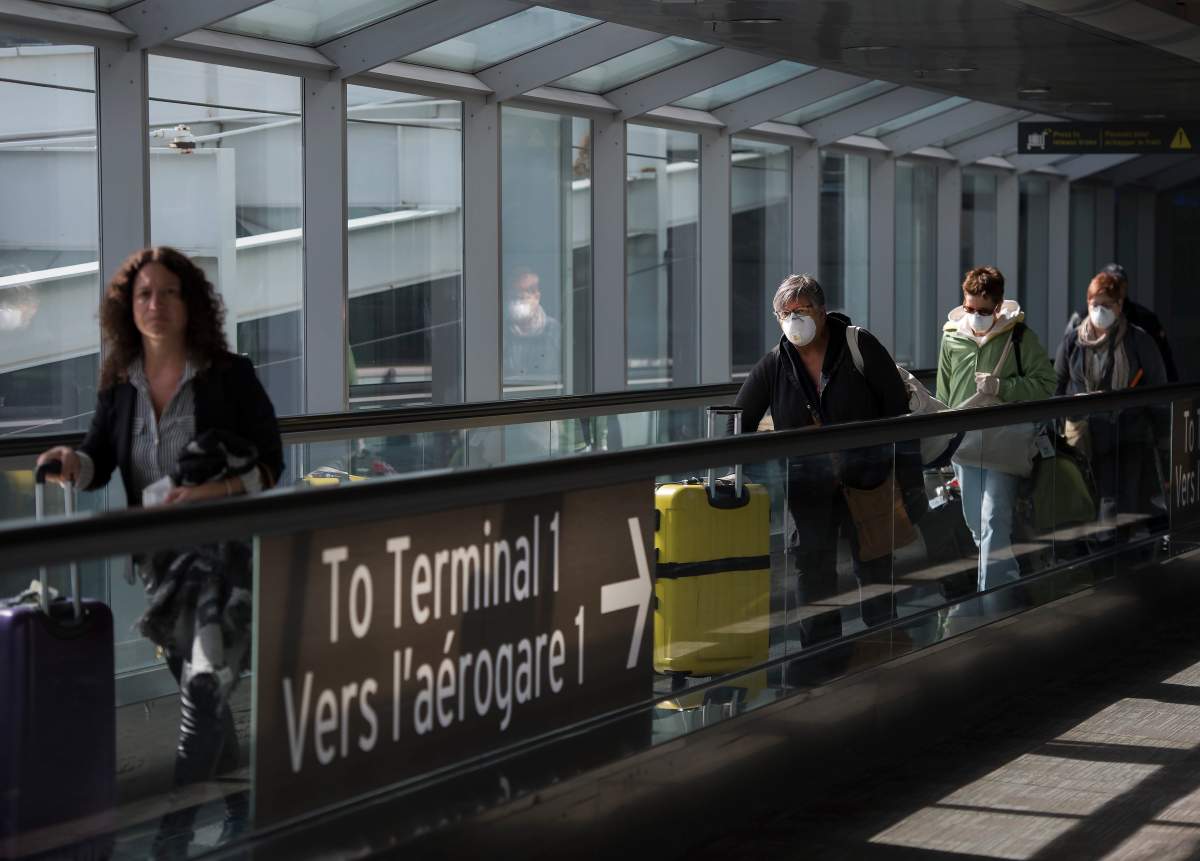Early results from a McMaster-based study show that a 14-day quarantine period for air travellers may not be necessary.

The first half of the study from McMaster HealthLabs found only 89 of 8,644 international passengers who landed at Toronto’s Pearson International Airport between September and October tested positive for COVID-19.
That’s only about one per cent of travellers, and of those cases, just under 70 per cent were detected upon passengers arriving at the airport, while about 26 per cent were detected by day 7 of the 14-day quarantine period.
Only five cases were detected on the 14th day of quarantine.
Dr. Marek Smieja, scientific director of McMaster HealthLabs, co-principal investigator of the study, and a professor of pathology and molecular medicine at McMaster University said an important piece of their study is that they’re testing both symptomatic and asymptomatic people.
“It’s a big debate across the world, is ‘What’s the role of testing asymptomatic’?” said Smieja during an interview on Global News Radio 900 CHML’s Bill Kelly Show.

Get daily National news
“And it’s a big question for international travellers, where more and more airlines are requiring a test before you can get on a flight.”
Although these are only the preliminary findings of the study — which spans from Sept. 3 to Nov. 14 — Smieja said it stands to reason that the mandatory quarantine period doesn’t need to be as long as it currently is.
- There are changes coming to Tim Hortons menus and stores soon
- Supreme Court annuls 2025 one-vote Liberal win in Montreal riding
- ‘We now have to figure out how to live life without her’: Mother of Tumbler Ridge shooting victim speaks
- Elections Canada says Freeland broke rule by answering byelection questions
“Most of the data suggests that by five to seven days, probably 95 per cent of people who are going to develop COVID are already shedding the virus. Which means if you’re negative by day seven, your chance — from your original exposure — of getting COVID is pretty low.”
The interim report suggests that a “test and reduced quarantine” approach would detect the majority of COVID-19 cases and could be adopted as the risk of being exposed to the virus has shifted more to community transmission than transmission through travelling.
Alberta is currently engaged in a pilot program that combines airport-based testing with self-collected nasal or oral swabs, as well as home-based collection during the quarantine period, and the report suggests this model would be effective on a wider scale.
It’s the largest study of its kind in the world, with the final report expected to include detailed results from over 16,000 participants that have completed more than 40,000 tests.
It will also look at the psychological impacts of being in quarantine, and will be released in January.










Comments
Want to discuss? Please read our Commenting Policy first.